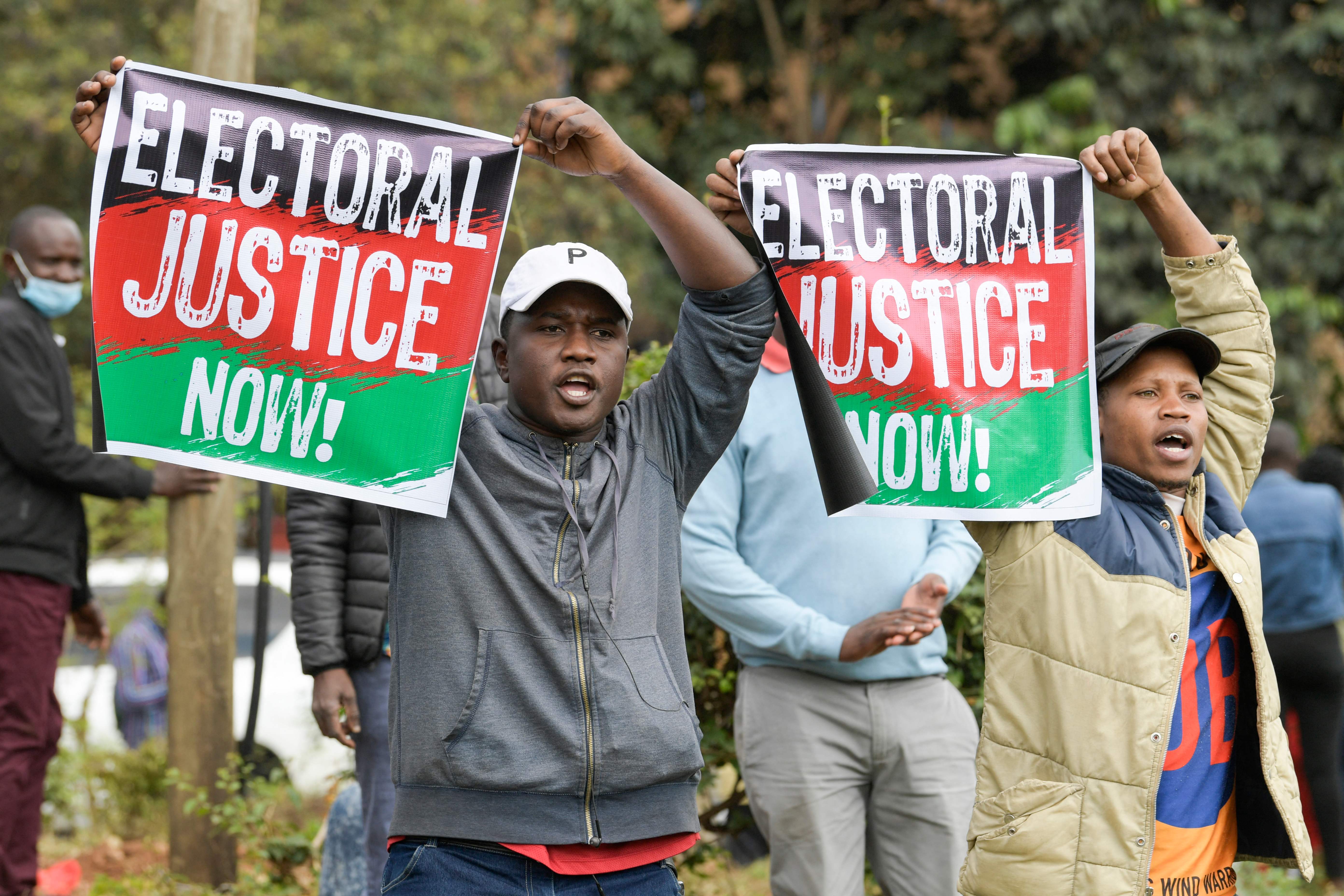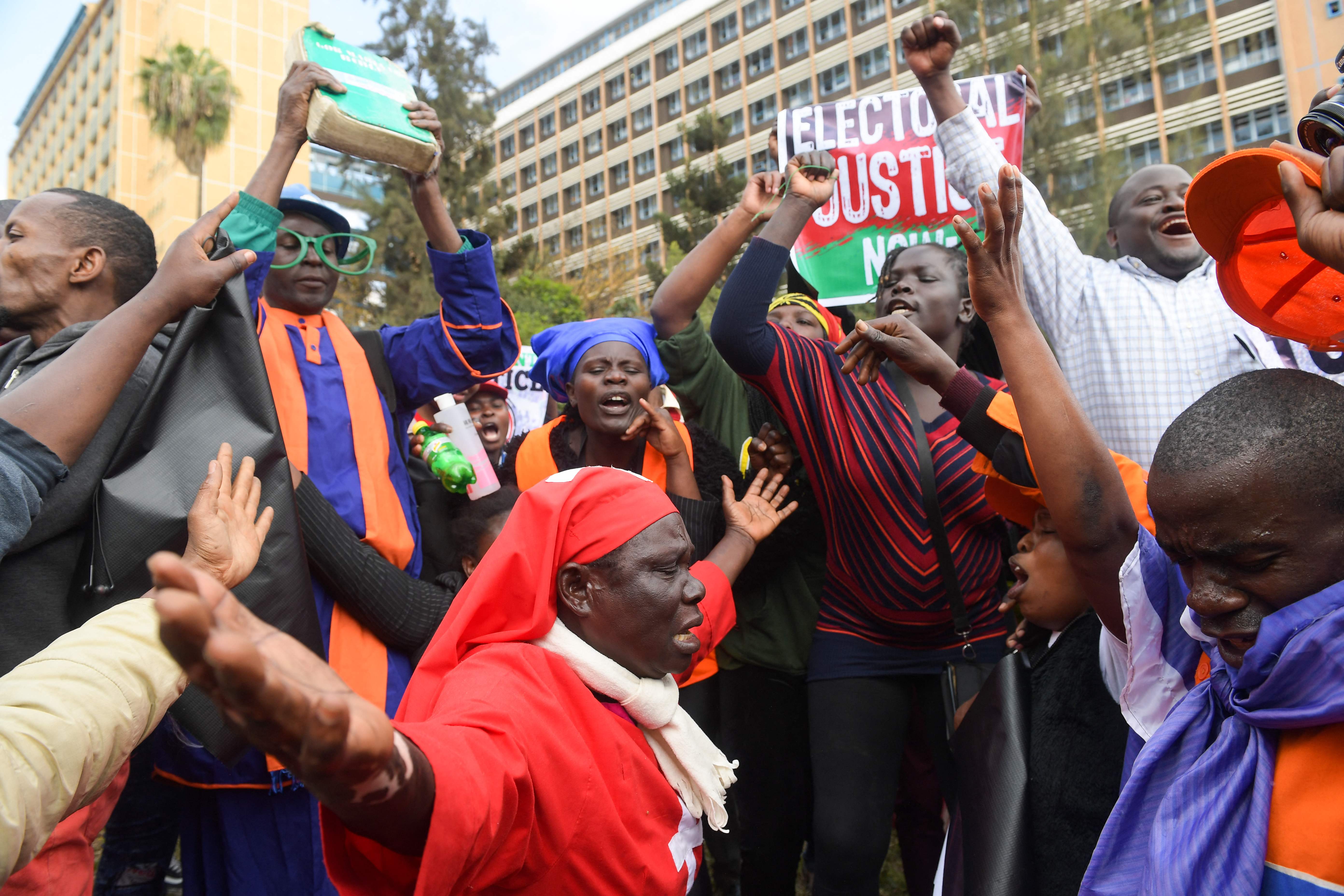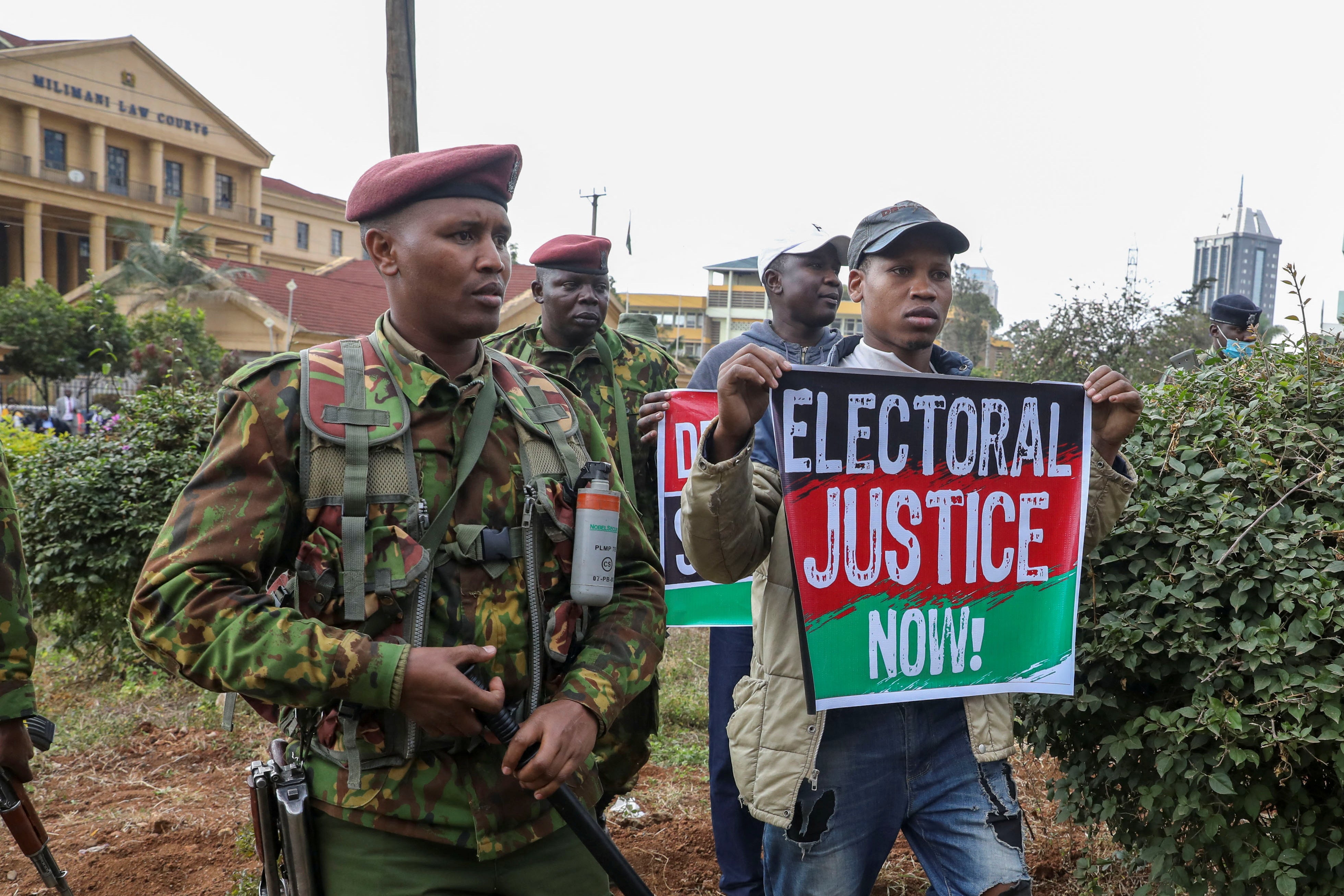Kenya: Raila Odinga challenges presidential election result in Supreme Court
Raila Odinga last week called the election results a ‘travesty’

Your support helps us to tell the story
From reproductive rights to climate change to Big Tech, The Independent is on the ground when the story is developing. Whether it's investigating the financials of Elon Musk's pro-Trump PAC or producing our latest documentary, 'The A Word', which shines a light on the American women fighting for reproductive rights, we know how important it is to parse out the facts from the messaging.
At such a critical moment in US history, we need reporters on the ground. Your donation allows us to keep sending journalists to speak to both sides of the story.
The Independent is trusted by Americans across the entire political spectrum. And unlike many other quality news outlets, we choose not to lock Americans out of our reporting and analysis with paywalls. We believe quality journalism should be available to everyone, paid for by those who can afford it.
Your support makes all the difference.Kenya’s veteran opposition leader Raila Odinga has filed a challenge to the results of this month’s presidential election in the Supreme Court.
His lawyer Daniel Maanzo confirmed the challenge was filed online on Monday, sharpening a political clash that has gripped the country.
“After today there will be four days for the other parties to reply,” Mr Maanzo told reporters.
A source at the judiciary confirmed they had received a copy of the file.
Last week, the election commissioner declared deputy president William Ruto had won the election by a slim margin, but four out of seven election commissioners dissented, saying the tallying of results had not been transparent.
Mr Odinga, who leads the Azimio La Umoja Party, called the results a “travesty” but said he would settle the dispute in court and urged supporters to remain peaceful.

This is Mr Odinga’s fifth stab at the presidency and he has blamed several previous losses on rigging. Those disputes triggered violence that claimed more than 100 lives in 2017 and more than 1,200 lives in 2007.
In 2017, the Supreme Court overturned the election result and ordered a re-run, which Mr Odinga boycotted, saying he had no faith in the election commission.
This time, the opposition leader is backed by the political establishment. President Uhuru Kenyatta endorsed his candidacy after falling out with Mr Ruto after the last election.
At stake is control of East Africa’s wealthiest and most stable nation, home to regional headquarters for firms like General Electric, Google, and Uber. Kenya also provides peacekeepers for neighbouring Somalia and frequently hosts peace talks for other nations in the turbulent East Africa region.

The case will be heard by the seven-member Supreme Court and presided over by Martha Koome, Kenya’s first female chief justice, who was appointed by Kenyatta last year.
The court will next conduct a status conference with all parties to define the hearing schedule and ground rules. The constitution requires judges to issue their decision within 14 days of the lawsuit being filed.
Due to the tight schedule, it normally issues a summary judgment within 14 days, followed by more thorough decisions from each of the seven judges at a later date.

One week ago, electoral commission chairman Wafula Chebukati declared Mr Ruto the winner with 50.49 per cent of the vote against Odinga’s 48.5 per cent.
But minutes earlier, his deputy Juliana Cherera had told media at a separate location that she and three other commissioners disowned the results.
She said the elections had been conducted in a proper manner - and most international observers agreed - but that results were erroneously aggregated.
Public confusion reigned over the tallying after the Kenyan media suspended a count of 46,229 polling-station level results with around 80 per cent of the vote counted.
The election commission’s website still does not display the correct forms for all 291 constituencies. In some cases, the form is incomplete or only partially loaded, making it impossible for the public to confirm the commission’s count.
Join our commenting forum
Join thought-provoking conversations, follow other Independent readers and see their replies
Comments